ISO 16949 is a globally recognised quality management standard designed specifically for the automotive industry. It plays a crucial role in ensuring the production of high-quality, safe vehicles and components. In this article, we will explore the management systems, their significance, and how they drive excellence in quality within the automotive sector.
ISO 16949 management systems, also known as IATF 16949:2016, are based on the ISO 9001 standard and are tailored to meet the specific requirements of the automotive industry. These management systems provide a structured framework for organisations to enhance quality, safety, and overall efficiency in their operations.

By implementing these systems, organisations can enhance their product quality, operational efficiency, and competitive advantage while ensuring global recognition and trust. For those in the automotive sector, this system is the path to achieving the highest standards of quality and safety.
While both ISO’s are quality management standards, ISO 16949 is a sector-specific standard tailored for the automotive industry. It incorporates many ISO 9001 requirements but includes additional automotive-specific requirements.
To become certified, an organisation must implement a quality management system in line with the requirements of ISO 16949, conduct internal audits, and undergo external assessments by accredited certification bodies. The organisation must demonstrate compliance with the standards.
The standard emphasises the importance of ongoing improvement and management system reviews. Organisations should continually monitor and evaluate their quality management system to ensure it remains effective and responsive to changing conditions.
ISO 16949 certification helps improve product quality and consistency across the entire automotive supply chain. It fosters trust among manufacturers, suppliers, and customers and reduces the likelihood of defects or quality issues.
ISO 16949 certification demonstrates a commitment to high-quality and safe automotive products. This, in turn, enhances customer confidence by assuring them that the products they purchase meet stringent automotive quality standards.

We leverage years of experience in cyber security to deliver comprehensive solutions tailored to your needs.

We're certified in ISO 9001:2015, Cyber Essentials Plus, IASME Gold and are a Crown Commercial Service Supplier.

NCSC (CESG) Certified Professionals CCP and Certified Information System Security Professional CISSP certified.

We're Certified Information Security Managers (CISM).

We're members of the Chartered Institute of Information Security (CIISec). CREST and Cyber Scheme Registered Pentesters.

We stay ahead of the curve, consistently updating our services to handle the rapidly evolving landscape of cyber threats.

We work closely with clients, fostering partnerships to better understand and address your cyber security needs.

We offer pragmatic, accessible solutions that balance security needs with the realities of your operational requirements.